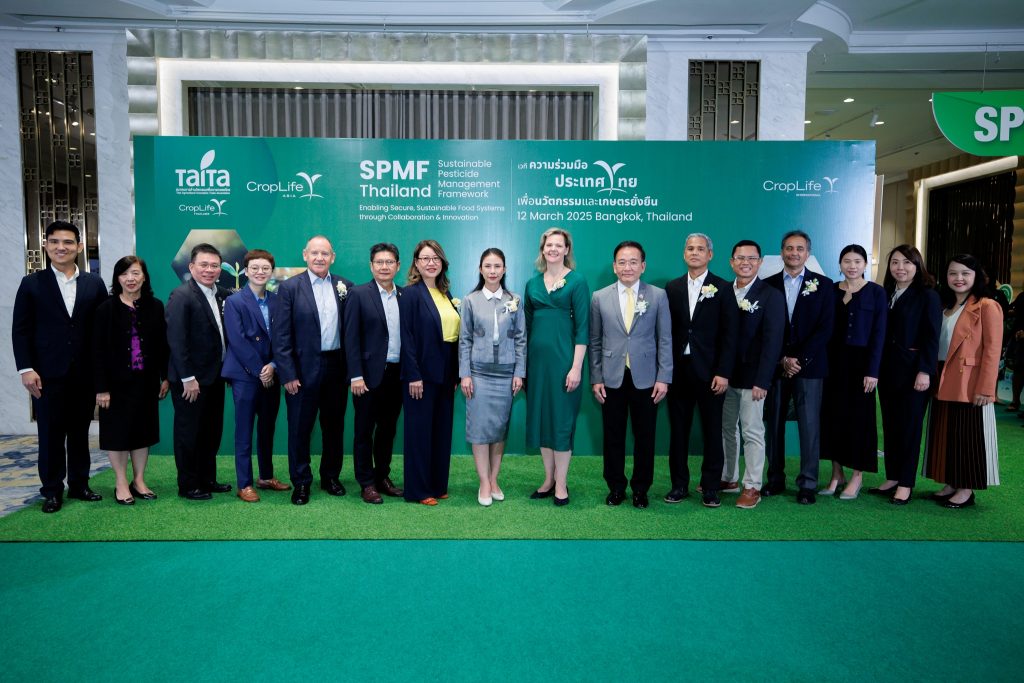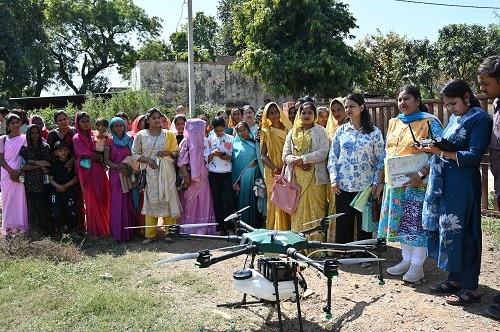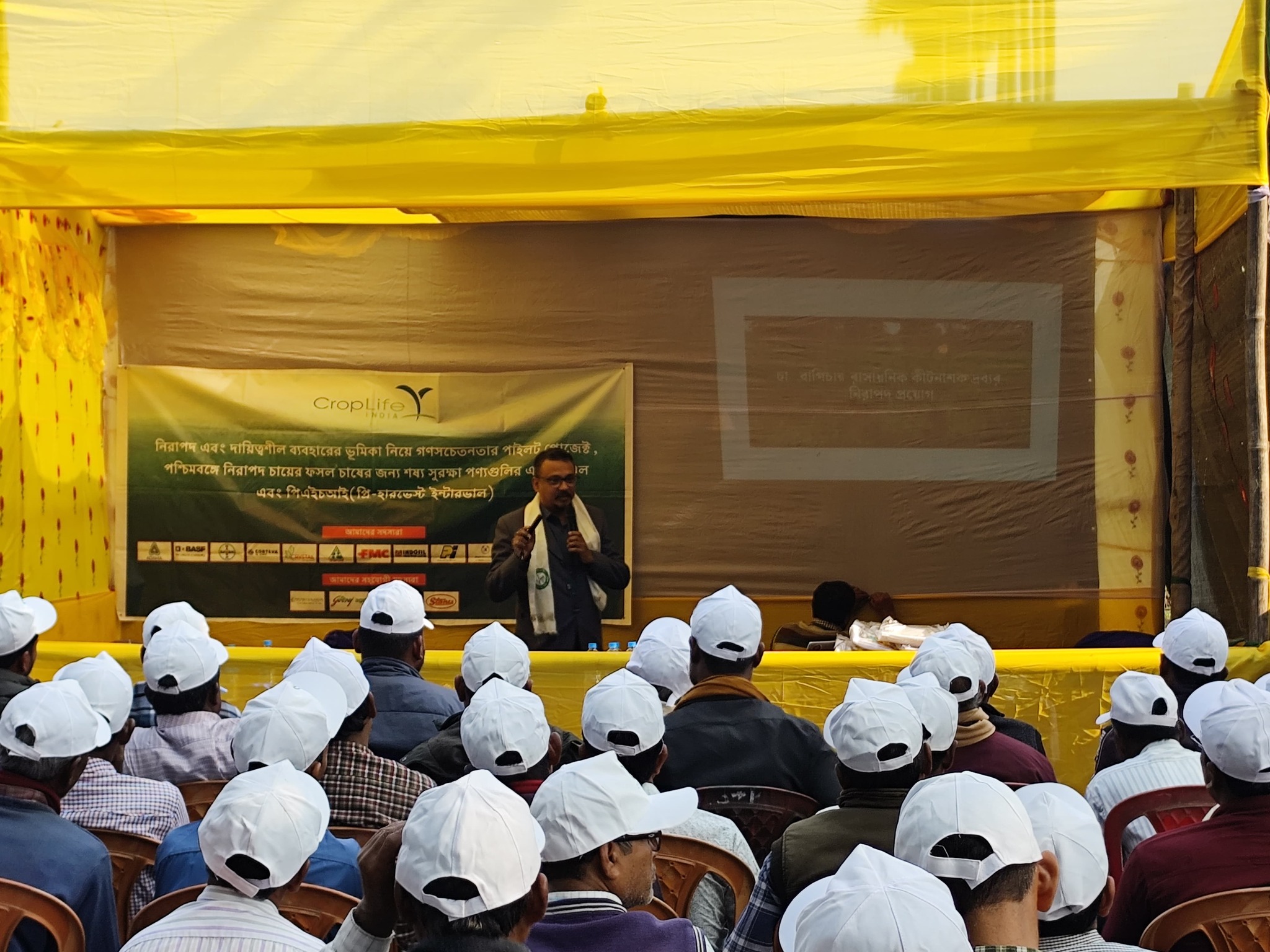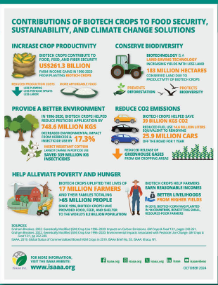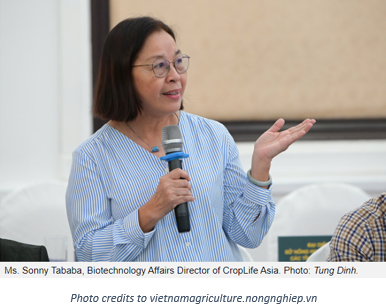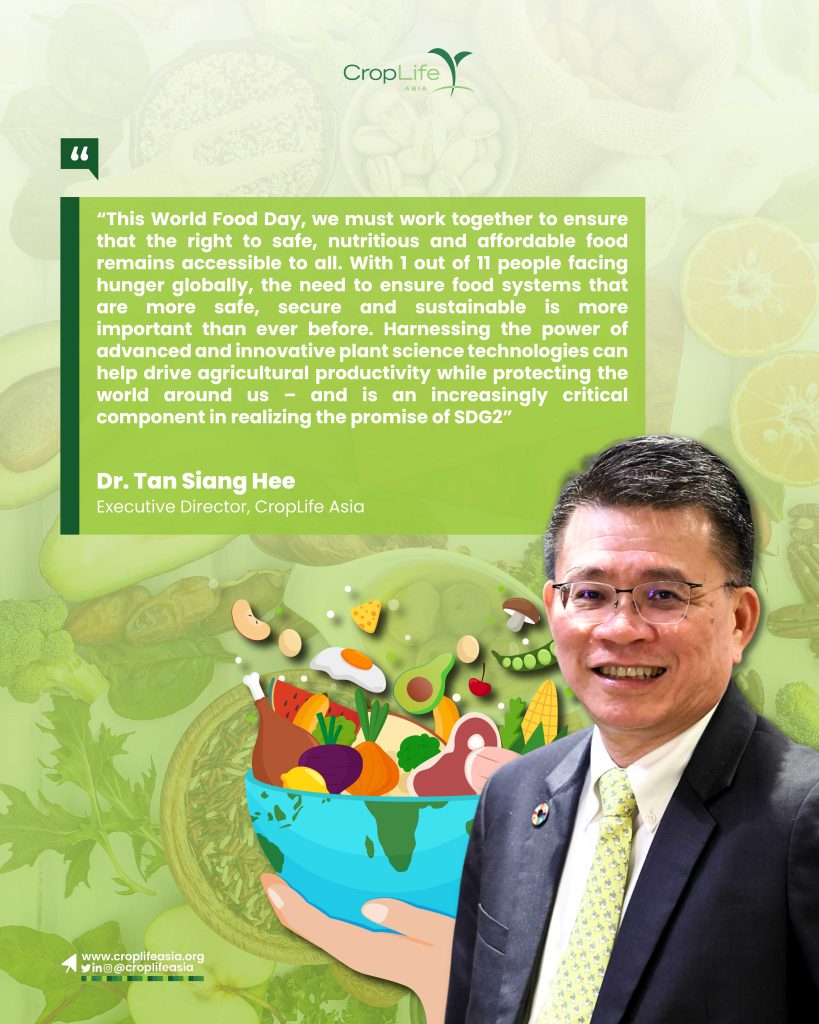Stay rooted in the latest agriculture news updates!
Australia I BangladeshI China I India I Indonesia I Japan I Korea I Malaysia I Pakistan I Philippines I Taiwan I Thailand I Vietnam I Plant Science I Global
Global/Regional News
UPCOMING EVENT: Festival of Stewardship 2025, 15 July 2025, Singapore Time (SGT): 20:00 – 22:00
How does agriculture support the world’s population in the face of multiple global challenges? What support do farmers need and how can this be provided in an effective manner? Stewardship programs help by offering farmers practical advice on managing their land, inputs, and outputs more effectively. But delivering these services to millions of farmers—and making a real, lasting impact—is no easy task. This webinar will look at the key challenges, highlight innovative solutions, and share success stories. We’ll hear different perspectives and insights, including from the farmers themselves.
You can find the program of the webinar here.
UPDATED DATES & VENUE!!! Save the Date: 8th Asian Short Course on Agribiotechnology, Biosafety Regulation, and Communication
The International Service for the Acquisition of Agri-biotech Applications (ISAAA), Inc., and the Malaysian Biotechnology Information Centre (MABIC) announce the 8th Asian Short Course on Agribiotechnology, Biosafety Regulation, and Communication (ASCA8). The 5-day intensive training program for key biotechnology players will now be held on September 8-12, 2025 in Manila, Philippines. For more information, please click the link – ASCA8updates
CropLife International published the 2024 Annual Report of its Sustainable Pesticide Management Framework program (SPMF), the flagship initiative created in 2021 to support and enhance ongoing implementation of the International Code of Conduct on Pesticide Management (ICoC). Read more…
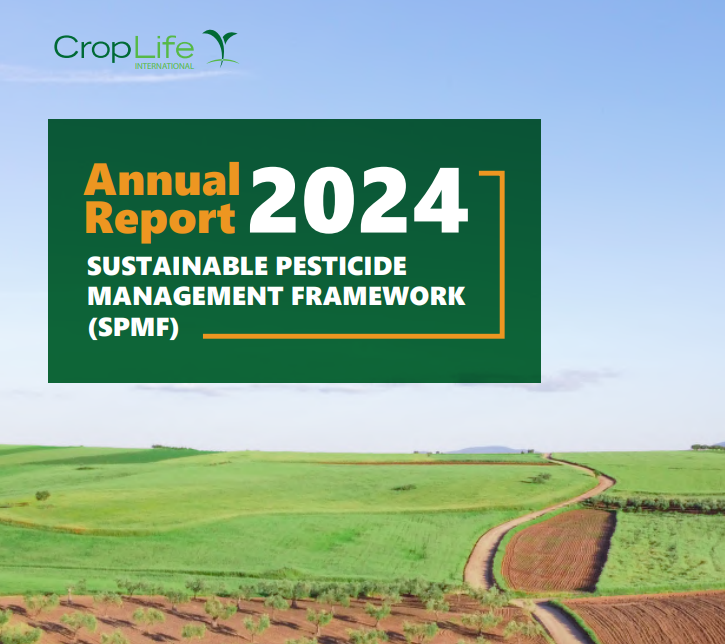
Addressing the International Grains Council conference in London, CropLife International President and CEO Emily Rees called for global value-chain cooperation in the face of geopolitical volatility, focusing on the core role of plant-science technology as the driver to meeting future food productivity needs. Read more…
Country News
Australia and New Zealand Consider Approval for Genetically Modified Purple Tomato
On June 20, 2025, the Food Standards Australia New Zealand (FSANZ) announced the evaluation of Application A1333, which seeks approval for the use of genetically modified (GM) purple tomatoes in food. The purple tomato, developed by Norfolk Healthy Produce Inc., has been genetically modified to generate natural blue pigments (anthocyanins) during ripening, resulting in its distinct purple skin and flesh. Anthocyanins are known for their antioxidant properties, making this tomato a potential innovation in functional foods. Read more…
FSANZ Board Approves Updated Definition of Gene Technology and New Breeding Techniques
On 4 June 2025, the Food Standards Australia New Zealand (FSANZ) Board approved a major update to how genetically modified (GM) food is defined under the Australia New Zealand Food Standards Code (the Code). The revision, part of Proposal P1055, aims to revise outdated, process-based definitions with new outcome-based criteria to address advances in gene technologies. Read more…
International Biotechnology Conference 2025 concludes at BRAC University
The two-day International Biotechnology Conference 2025 (IBC 2025) concluded at BRAC University in Merul Badda, Dhaka, fostering interdisciplinary collaboration and showcasing emerging trends in biotechnology research and application. Read more…
Beijing Pushes Rapid Introduction of New Soybean, Corn, and Wheat Varieties
As part of a broader initiative to support agricultural development and enhance food security, China will speed up the introduction of new crop varieties. According to the Ministry of Agriculture and Rural Affairs, the focus will be on high-oil, high-yield soybean, dense-tolerant and disease-resistant corn, and disease-resistant wheat. Read more…
Minister Han Jun Meets with Hungarian Minister of Agriculture
Han Jun, Minister of Agriculture and Rural Affairs, met with Istvan Nagy, Minister of Agriculture of Hungary, in Beijing on June 17. They exchanged views on deepening China–Hungary cooperation in agriculture. Read more…
Ministry emphasizes balance between farmers’ interests and rural revitalization
At a news conference held on Friday, the ministry emphasized that this farmland red line must be strictly adhered to without any breaches, and high-quality farmland should primarily be used for grain production. Read more…
China, Thailand kick off durian festival, fruit week
The 2025 Thailand Durian Carnival and China-Thailand Fruit Week launched in Beijing over the weekend, aiming to deepen agricultural cooperation between the two countries and inject new vitality into regional fruit trade. Read more…
Across China: Cutting-edge technologies bring ancient inventions to life
In the heartland of China, near a 4,500-year-old farmland, a team of agricultural scientists is modernizing an ancient practice. They are using big data analytics and AI modeling to study and improve the yield of a specific plot of land. Read more…
Government may introduce seed amendment bill in Parliament this year
The government is in the process of making changes to the Seed Act to address the problem of spurious seeds, minister of agriculture and farmers’ welfare, Shivraj Singh Chouhan said. The amended bill will ensure traceability of seeds and fix accountability, he said. “We are in the process of amending the Seed Act, which would be introduced soon,” the minister added. Read more…
India, US Push For Interim Trade Deal Before 9 July As Trump’s Tariff Deadline Looms
India and the United States remain in active negotiations to finalise an interim trade agreement ahead of the 9 July deadline, failure of which could trigger the reinstatement of steep reciprocal tariffs imposed by Washington, PTI reported. Read more…
Shukla lifts off with 7 Indian experiments
Seven indigenously developed scientific experiments from India have been launched aboard the Axiom Mission 4. These experiments were developed by publicj research institutions across India and aimed to advance knowledge in agriculture, health and survival in extreme environments. Read more…
Centre approves South Asia unit of International Potato Centre at Agra
The CIP-South Asia Regional Centre (CSARC) will come up at Singna in Agra and will not only serve farmers in states like Uttar Pradesh, Bihar, and West Bengal but also cater to South Asian countries. Read more…
Indonesia Aims for Sugar Self-Sufficiency by 2027, Says VP Gibran
The government is stepping up efforts to achieve national sugar self-sufficiency, with Vice President Gibran Rakabuming Raka reaffirming the administration’s commitment to support farmers and strengthen the sugar industry from upstream to downstream. Read more…
Indonesia Seeks Joint Venture Fertilizer Plant with Russia
Agriculture Minister Andi Amran Sulaiman said Russia has expressed readiness to invest in the project, which is intended to serve both domestic needs and export markets. Read more…
Indonesia to Stop Corn Imports by 2026, Prabowo Says
President Prabowo Subianto has ordered a halt to corn imports by 2026 as Indonesia moves toward achieving food self-sufficiency. Read more…
Agriculture ministry aims to stop publishing rice index amid accuracy concerns
The agriculture ministry plans to cease publishing its rice crop situation index, which has been used for almost seven decades, after farmers and retailers voiced concerns that government data is overstated. Read more…
Lee Jae Myung unveils 11 new ministers as Cabinet takes shape
President Lee Jae Myung on Monday nominated 11 ministers for Cabinet posts, including South Korea’s first civilian chief of the Ministry of National Defense in more than six decades, while the incumbent agriculture minister, Minister Song Mi-ryung, from the previous Yoon Suk Yeol administration will remain in her post. Read more…
Korea aims to double Nepal’s rice yields through new KOPIA initiative
New Kathmandu center to support seed development, mechanization, and self-sufficiency in staple crops. Read more…
Agriculture ministry to launch task force on stabilizing food supply amid price hikes
The agriculture ministry said Wednesday it will launch a task force on stabilizing the supply of agricultural and livestock products to rein in soaring food prices. Read more…
PM calls for local fruits at govt functions, open to SST review
Prime Minister Anwar Ibrahim has proposed that government departments and agencies serve local fruits during official functions to promote domestic agriculture. Read more…
DOSM to unveil National Agricultural Production Index to address critical data gaps
The Department of Statistics Malaysia (DOSM) will soon introduce a National Agricultural Production Index to strengthen food security by addressing critical data gaps in the agriculture sector. Read more…
Govt reaffirms zero tolerance for fake seeds, prioritizes quality supply to farmers
The federal government has reiterated its commitment to ensuring the provision of high quality certified seed to farmers across Pakistan, declaring it a top national priority. Read more…
China-Pakistan saline-alkali land and dryland agriculture cooperation deepens
The two sides agreed to carry out joint research on new germplasms of saline-alkali land crops and dryland agricultural technologies to enhance the capacity for regional agricultural sustainable development. Read more..
Minister calls for urgent climate action to bridge food-water-agriculture divide
Federal Minister for Climate Change, Dr. Musadik Masood Malik emphasized aligning Pakistan’s climate strategies with global sustainability goals, calling for enhanced focus on scientific innovation and adaptive governance. Read more…
DA expects stronger second-quarter growth on higher rice, corn harvests
The Department of Agriculture (DA) expects stronger performance in the second quarter, led by improved rice and corn harvests. Read more…
Philippines-Japan space collaboration to boost disaster response, agriculture
President Ferdinand “Bongbong” Marcos Jr. on Friday announced a new collaboration between the Philippine Space Agency (PhilSA) and the Japan Aerospace Exploration Agency (JAXA) that aims to use space technology to enhance disaster response, agricultural planning, and public safety in the Philippines. Read more…
Satellite-based crop insurance to benefit rice farmers – IRRI
The government is teaming up with the International Rice Research Institute (IRRI) to pilot an insurance program designed to monitor farm conditions and assess crop damage using satellite data. Read more…
Gov’t launches ₱27.7-billion program to solve agri logistics woes
Department of Agriculture (DA) Secretary Francisco Tiu Laurel said the government is stepping up efforts to address long-standing logistical issues in the agriculture sector through the ₱27.7-billion farm-to-market bridges development program (FMBDP). Read more…
EU body approves Taiwanese mango, guava for import
The EU’s Directorate-General for Health and Food Safety (DG SANTE) has approved Taiwan’s application to export mangoes and guavas to all 27 EU member states following a years-long suspension due to tightened regulations. Read more…
Cabinet reshuffle expected as parties finalise ministerial appointments
The Klatham Party is set to replace the Minister of Agriculture and Cooperatives, with “Sia Benz” Atthakorn Sirilatthayakorn, a close ally of party strategist Colonel Thammanat Prompao, seen as a likely candidate to take over from Narumon Pinyosinwat. Read more…
Thai-Cambodian border closure has limited impact on Thailand: Agriculture Ministry
The closure of the Thai-Cambodian border has impacted Cambodia’s annual cassava exports worth 9 billion baht, while Thailand’s vegetable exports remain insignificant. Read more…
Vietnam, Thailand aim to grow rice exports to Japan
In both countries, production of japonica rice, which is the same short-grain variety as that produced in Japan, has been expanding amid a boom in washoku Japanese cuisine. Read more…
Responsible agrifood systems to advance Vietnam NDC 3.0 goals
According to Mr. Huy, Head of the Greenhouse Gas Emission Reduction and Ozone Layer Protection Division under the Department of Climate Change (Ministry of Agriculture and Environment), this emission lowering is the result of scaling up various technical solutions for low-emission rice cultivation, Five Reductions (1M5R) approach, alternate wetting and drying ( AWD ) irrigation, application of biotechnology in crop and livestock production, and improvements in soil management and afforestation. Read more…
Post-merger agriculture in the Mekong Delta: Scaling up, streamlining procedures
The Mekong Delta, Vietnam’s hub for rice, aquaculture, and fruit production, is at an important turning point in its development restructuring process, as the Government’s policy to merge provinces and cities is implemented. Beyond changes to administrative boundaries, the merger paves the way for new development spaces, enabling larger-scale production, streamlined administrative procedures, enhanced regional linkages, and improved competitiveness for the agricultural sector. Watch video…
U.S. Soy Celebrates 30 Years of Partnership with Vietnam
The U.S. Soybean Export Council (USSEC) today commemorates three decades of partnership between U.S. Soy and Vietnam at a milestone event in Ho Chi Minh City. Read more…
Prime Minister: Vietnam exemplifies rural development and poverty reduction
(VAN) Vietnam’s national goal programs have effectively mobilized the combined strength of agriculture, farmers, and rural areas, thereby enhancing the material and spiritual well-being of the Vietnamese populace. Read more…
Australian breakthrough could lead to more climate change resilient crops
A plant biology breakthrough including work from researchers at Victoria’s Monash University could help breeders tailor crops specifically suited to individual climatic zones. Read more…
New CRISPR-Based Gene Switch Helps Plants Beat Heat and Disease, Paves Way for Smart Farming
In a breakthrough that could redefine how crops handle environmental stress, researchers from the Bose Institute, an autonomous institute under the Department of Science and Technology (DST), have developed a smart CRISPR-based molecular tool that enables plants to fight disease and tolerate heat—only when necessary. Read more…
Experts from India Use Gene Editing to Fight Rice Dehydration
A study conducted by researchers from the NIPGR, ICAR, NRRI, and Regional Centre for Biotechnology in India shows that the overexpression of OsDUF2488 provides improved tolerance to dehydration and oxidative stress in rice. Read more…
CSIRO Scientists Identify Gene Behind Bt Cotton Resistance Against Bollworms
Researchers from the Commonwealth Scientific and Industrial Research Organisation (CSIRO) have identified how insect pests are developing resistance to Bt cotton. Read more…
Improved Samba Mahsuri is a high-yield, disease-resistant rice variety developed using Marker Assisted Selection. It combats bacterial blight, maintains premium grain quality, and offers a low glycemic index. Read more…
Credits to the owners of the news embedded on this post.



